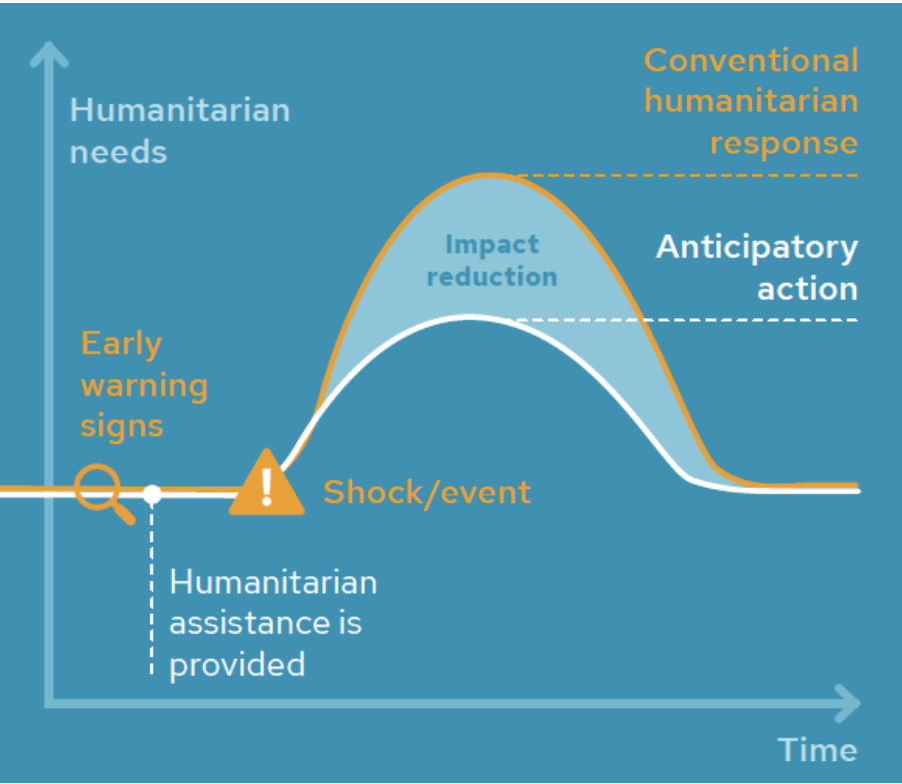By Diakonie Katastrophenhilfe (DKH)

Loss and damage can be understood as the negative impact of climate change that occurs despite, or in the absence of, climate change mitigation and adaptation measures. Limits to adaptation are the point at which adaptive responses cease to provide protection against climate impacts. When an adaptation limit is reached, loss and damage will escalate as adaptation is no longer able to reduce negative impacts. The Intergovernmental Panel on Climate Change (IPCC) has also warned that even if effective actions to limit global temperature increase to 1.5°C were put in place, loss and damage stemming from climate change are not preventable, as there is a “locked-in” level of warming that already leads to unavoidable consequences.
United Nations Early Warning for All initiative
Climate, weather and water-related extremes have led to 15 times more deadly hazards for people in Africa, South Asia, South and Central America, and small island states. Over the last 50 years, nearly 70 percent of all deaths from climate-related disasters have occurred in the 46 poorest countries. This initiative aims to enhance collaboration and accelerated action to address gaps and deliver people-centered, end-to-end multi-hazard early warning systems that leave no one behind.
Getting Ahead of Disasters Charter: One of the biggest obstacles preventing the conversion of early warnings into effective early and anticipatory action is the lack of pre-arranged financial resources. Over 98% of crisis financing is still arranged after disasters strike – despite reliable science to predict them. Evidence from the field suggests that twice as many vulnerable persons can be served at the same cost by deploying resources pre-disaster.
Diakonie Katastrophenhilfe’s work on locally led anticipatory action
Diakonie Katastrophenhilfe has a focus throughout our programming on humanitarian disaster risk reduction and tackling the climate crisis. One key approach we have developed is Locally led Anticipatory Action – applied to localize and scale up early warning and early action. We have developed a Guide & Toolkit on this topic in collaboration with our local partners and the Global Network of civil society actors for Disaster Reduction (GNDR).
We are also supporting our local partners, especially those from the Global South, to establish working groups on locally led anticipatory action, with the Anticipation Hub and ACT Alliance, to influence policies and shape fully and predictably financed, scaled-up early action.
A call for collective action
Diakonie Katastrophenhilfe joins our sister organization Brot für die Welt in calling to increase the contribution for start-up financing to the #LossAndDamage fund to one billion euros. We also join Climate Alliance Germany and VENRO in the call for the German Government to advocate for a robust and measurable global adaptation target and to implement the Principles for Locally led Adaptation. We also endorse the ICVA, Joint call on Loss and Damage Fund to empower communities with skills and resources to prepare, respond and recover from climate impacts, including through timely, flexible, predictable, multi-year funding support for both rapid-onset and slow-onset impacts.
Diakonie Katastrophenhilfe encourages our local partners and other allies to join us in addressing climate change loss and damage by endorsing, making commitments, and promoting the following charter and calls to action.
- Getting Ahead of Disasters, A Charter on Finance for Managing Risks
- Call to Action: Scaling up locally-led anticipatory action – so that no one is left behind
- Global Network of civil society actors for Disaster Reduction COP28 Call to Action
Diakonie Katastrophenhilfe is a partner of both the Risk-informed early action Partnership (REAP) and the Anticipation Hub, and a member of GNDR and ACT Alliance.